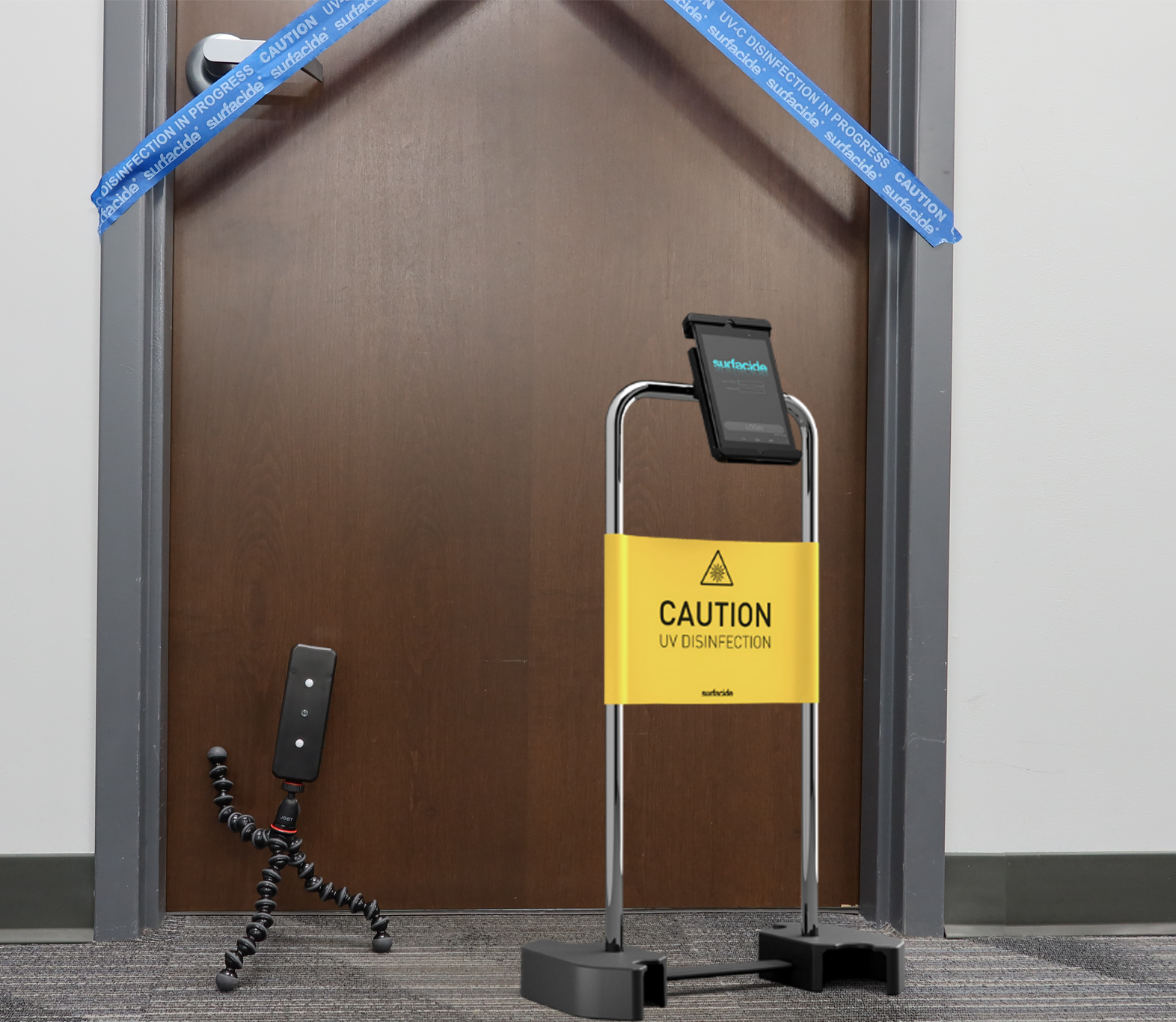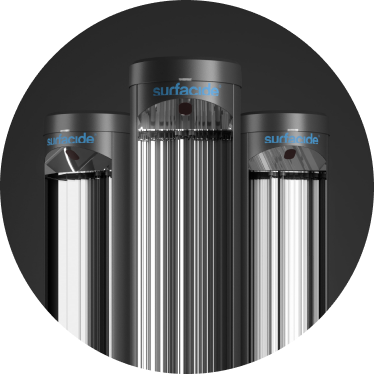It is a hospital’s job to reduce infection risk, keep patients safe and get them well. So why would a hospital bring in UVC disinfection equipment that hasn’t been certified and marked for safety?
Many hospitals rely on UVC disinfection devices as an adjunctive cleaning method and effective part of their infection control strategies. But when it comes to evaluating the safety of UVC devices, many on the market are untested and not adherent to regulatory requirements.
Some of our competitors claim safety “certification” of their UVC disinfection devices. It is important to understand whether the device in its entirety or system as a whole is certified or only a single component of the device such as the battery or lamp is tested for safety.
Additionally, hospitals should only use UVC devices that have been tested and safety certified as a whole by reputable independent safety labs such as Intertek (ETL), UL, TUV Rheinland, TUV SUD and SGS. The FDA recently wrote an article “urging device study sponsors and manufacturers to take proactive steps to qualify third-party test labs”. What does this mean? Just because a company claims they’ve been safety certified doesn’t always mean the third party labs and their data are reputable or accurate.
Being educated on safety and consensus standards are important when it comes to evaluating UVC. Let’s look at some reasons why reputable safety certifications matter:
Electrical Safety
Hospital-grade UVC devices involve electrical components. Ensuring that these components comply with electrical safety standards is essential for certification. This includes considerations such as insulation, grounding, and protection against electrical hazards.
Patient and Staff Safety
UVC devices emit ultraviolet radiation, which can be harmful to human skin and eyes. Safety-certified devices have been tested to ensure that their design minimizes the risk of harm to patients, staff, and visitors.
Compliance with Regulations
Healthcare facilities are subject to various regulations and standards to ensure the safety and well-being of patients and healthcare workers. Using safety-certified UVC devices, tested as a full system rather than individual components, helps hospitals comply with these regulations and demonstrates a commitment to maintaining a safe environment. This includes compliance with The Joint Commission’s standards for equipment safety, a designation important for maintaining accreditation and ensuring quality care for patients.
Effective Disinfection
Independent performance testing should be completed to verify the efficacy of UVC and to avoid a “false or misleading statement concerning the effectiveness of a product as a pesticide or device (40 CFR §156.10).” Hospitals rely on these devices to disinfect surfaces, equipment, and air to prevent the spread of infections. Safety-certified devices provide assurance that the UVC technology is effective in achieving the desired level of microbial reduction (as low as 1 log) or disinfection (6-log).
Surfacide Safety Certifications:
UL/IEC 61010-1
UL/IEC 61010-2-201
Other Surfacide Certifications:
IEC 61326-1
IEC 61000-3-2
IEC 61000-3-3
47 CFR 15.107
47 CFR 15.109
ISO 13485 MDSAP
BS 8628:2022
At the end of the day, hospitals need to be a safe place. Afterall, you go there to get better, not worse. To speak with someone on our team about Surfacide product certification, email info@surfacide.com.






